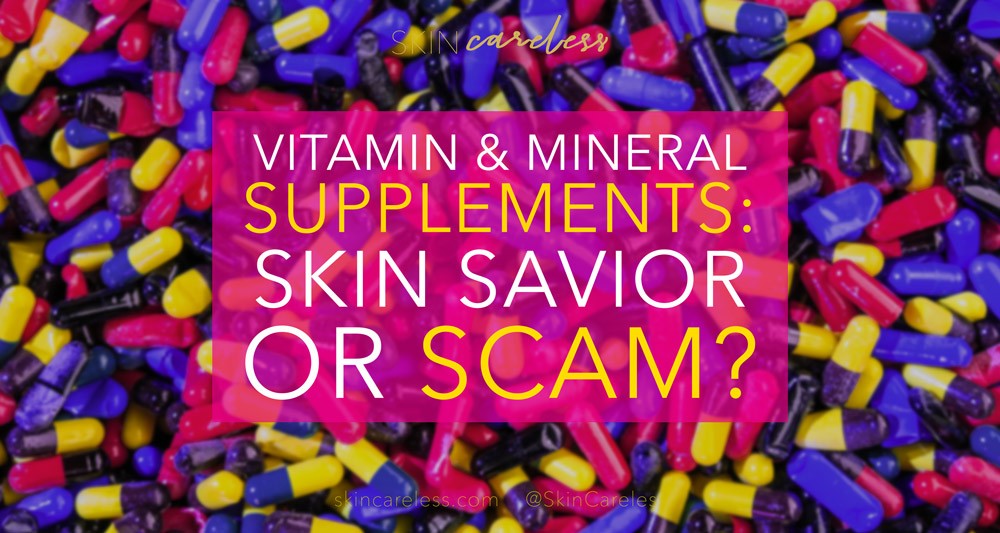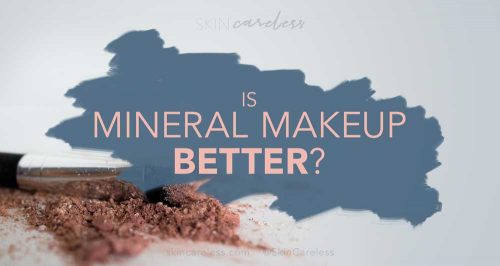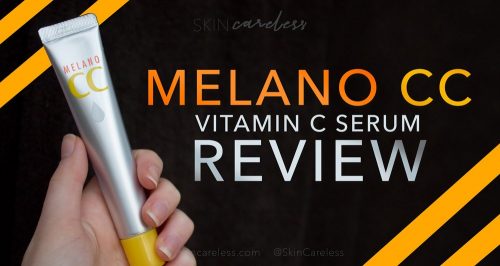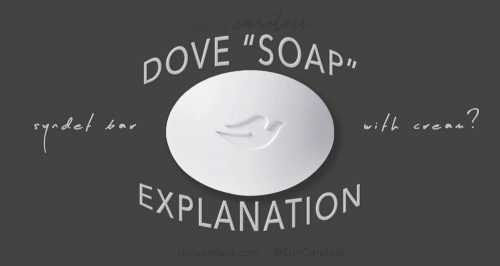If you have Facebook or Instagram, skim through YouTube, are over the age of 20, or just live within 100km of an internet connection, you’ve probably been tempted by glistening promises of youthful skin with the latest miracle supplement.
Often it’s a multi-level marketing type of arrangement, where people are bright-eyed and fast-fingered, eager to share their testimonies through direct messages and to have you on board to sell these products too!
I get it – especially for someone new to taking care of their skin, waking up, popping a pill or two and getting on with your baby-skinned day seems so alluring, right? Forget all the masks and in-office lasers and LED sessions!
But how much can we trust the advertising? I’m sure you’re a savvy internet user who’s healthily skeptical of any big beauty claim. Can a one-a-day skin supplement really solve your skin issues? How does it even work? Let’s dive in so we can suss out the claims these companies are making and decide once and for all whether skin supplements work.
What kinds of skin supplements are on the market?
You’ve seen them before, be it on a glossy Instagram feed or in your local supermarket. Words like ‘daily cleanse’, ‘detoxifying’, ‘age-defying’, ‘nutrient boost’ and ‘healing from within’ are thrown around like it’s nothing.
Names
You might notice a pattern in the naming conventions: often the product is simply called called ‘Hair Skin and Nails’ or ‘Skin Boost’. That’s pretty non-descriptive – and it’s for a reason (we’ll get into that below).
Price
They’re not too cheap either – an average supply for 2 months ranges from $20 to around $50 but sometimes higher. Seeing as this is in addition to – not in lieu of – other products in your routine, that’s a significant amount of money.
Claims
By far, the most common claims made by these supplements all centre around anti-ageing. Think fine line and wrinkle reduction, dryness prevention, firming, tightening, and pigmentation fighting.
They, like all supplements, host a range of different vitamins and mineral ingredients, each with a plethora of supposed abilities. There are some ingredients that crop up more often than not. Maybe they do some good? Let’s see…
What’s in skin-improving anti-ageing supplements?
Antioxidants
Let’s start with one of the most widespread supplement ingredients. Antioxidants come wearing many hats, but think some vitamins (such as C and E), zinc, glutathione, and beta-carotene. They counteract the damage that free-radicals cause our bodies. Antioxidants are such an in-depth ingredient capable of preventing or even reversing almost every aspect of skin ageing. They can be categorised as nutrients or non-nutrients, with non-nutrients being commonly found in plants and thought to be the most effective.
Vitamin D
Not only is Vitamin D produced by sun exposure (something we should be trying to avoid), but a lack of vitamin D causes immune deficiencies, leading to a higher risk of infection, and increased inflammation – such as the inflammation of a huge pimple.
Collagen
Ah, the king of anti-ageing. Collagen is a building block of the structures that support the skin’s surface – it constitutes 90% of what makes up your skin! This undoubtedly vital material keeps skin strong, thick and resilient, and everyone loses the ability to produce it with time.
Zinc
Due to its role in the immune system, deficiency in zinc is linked to severe cases of dermatitis.
Biotin
Another classic supplement staple, Biotin – a B vitamin like niacin – is related to the production of healthy fatty acids that form part of the skin barrier. It is water-soluble and so cannot be stored by the body for later use. Rare deficiencies leaving someone without sufficient Biotin can once again result in dermatitis.
Turmeric
A more unusual yet still virulently popular topical skin remedy, turmeric has made its way into the supplement world. Studies showing how turmeric supposedly affects the skin through an anti-inflammatory pathway are limited, and somewhat ironically it has been noted as a possible cause of contact rashes and hives.
Do skin supplements taken internally actually work better than topical skin care?
That all sounds pretty good, right? (possible allergies excluded).
Now we know the star ingredients and some of the positive effects they’re associated with, it begs the question: should we be eating them? It seems to make sense that ingredients delivered straight to the source (read: internally) work better, right?
While it’s easy to make this logical leap, think of it this way: Our skin is our bodies’ afterthought. We have numerous vitally important organs. They get the best blood flow, with first choice of nutrients, energy and everything.
So whatever you eat isn’t going right to your skin – it’s diverted past the liver, lungs, heart, brain and more, leaving only scraps for your skin. And for good reason. Internal organs override anti-ageing. It’s why your skin suffers from frostbite first – it’s the sacrificial lamb of body parts.
So for us to convince our bodies to use things at a skin level, which they don’t want to do, we often have to apply it at a skin level and in a certain format to get our bodies to utilise it.
Similarly, sometimes eating a certain substance isn’t the best way to gain its benefits. Our skin often has to produce its own resources – especially more complicated ones like collagen. For example, you can’t grow new bones by eating crushed up bones!
If you did have some big deficiency that’s causing your skin harm, you’d likely notice it in other far more serious symptoms. While the correct supplement as a treatment can help in rashes caused by a vitamin or mineral deficiency in these cases, if that’s not your issue then taking these unnecessary or incorrect supplements won’t do you any good.
It may support overall health and prevent future deficiencies but it won’t clear your acne and undo wrinkles.
Often too, things change drastically when taken internally vs externally. Retinol is a powerful anti-ageing ingredient, but its close sibling isotretinoin – an oral medication – is used to severely reduce oil production in cystic acne patients. One base ‘ingredient’, two very different results.
It’s worth mentioning that while the list above contains some contenders for supplement-worthy ingredients you might find on the labels, whether that’s what you find inside the pills is another story.
You also run the risk of taking in other less desirable ingredients like fillers and herbs that could affect medication. These ingredients bulk up the pills cheaply and could do more harm than good.
ConsumerLab offers a place to read more about what’s actually inside the pills versus on their packaging, and whether that stuff is even doing what it says it does.
How skin supplements seem so good: research, marketing and the consumer experience
Well if the supplements aren’t all sunshine and rainbows, why does it sound like they are?
I hate to break it to you, but not every company has your best interests at heart. The bar for entry to the supplement market is very low. The nature of supplements and a lack of restrictions imposed on them make them easy to sell, and hard to disprove.
Companies’ marketing tactics
First and most obvious is that those affiliated with a company and making a large commission from product sales are more likely to paint a positive picture, or even take marketing material directly from the company itself regardless of their experience.
The use of non-descript supplement names, and claims including language like “may improve” or “help support the healthy function of” absolve the manufacturer of providing any hard evidence to support their product’s claims. In this way, manufacturers can say that their claim is truthful based on consumer experience and trials, rather than hard evidence.
Lack of studies
Research for these “breakthrough” ingredients is often done by companies who have a stake in the product, and unaffiliated opinions are still hard to come by. When there are studies, often the sample sizes are small and the measurement of improvement very subjective. That’s another way of saying that skin supplements are barely, if ever, proven to work beyond a shadow of a doubt.
Objective data
From a psychological standpoint, supplements appeal to people who want an easy solution in a pinch, who are also the sort of people who wouldn’t deep-dive into the side effects or ingredients lists. This reminds us to remember the power of the placebo. If you have a superficial understanding of the science and are primed and expecting results, you may just see them. Taking pills each day might also kickstart your mindset of taking better care of your skin, which would result in better skin care habits and higher acuity to possible positive changes to your skin. This all leads to a positive consumer experience when in fact the objective improvements may be minor or non-existent.
Should you take supplements and expect better skin?
Short answer: No.
You don’t have to listen to me. I’m not saying it’s impossible there has or ever will be an effective supplements, it’s just that I can’t say for sure and probability goes against it. And when there’s real options like topical retinoids which do all that and more, I’ll definitely go for what’s proven. I don’t want you to get fooled and certainly don’t want you to throw away your whole routine thinking these pills offer a total solution.
By all means, take supplements for whatever you like (with proper precaution). It may have some effect and it may make you feel better and you can do whatever you like.
But those trained more rigorously than you or I in human medicine, who have studied supplements for years seem to agree that they’re over hyped and they under deliver, and consider them an unnecessary and inefficient way to stay healthy, let alone seek out any one result.
If you feel you have an unusually stubborn skin condition, visit a doctor and have them look at your overall health and lifestyle and determine whether a supplement could be a solution for you.
Stick to the ingredients and procedures you know work, proven time and time again by studies that you’ve personally looked into. We’re still far from the days of sunscreen pills and nano-facialist robots. But let me know when that time comes and I’ll be first on board 😉
If you’re still desperate for a skin-improving ingredient, I believe internal antioxidants are the most beneficial. There’s a large range of studies proving their effectiveness, and they do not simply treat a rare deficiency but rather the symptoms of our daily lives and the natural ageing process. It will support a range of functions in your body, so worst case you’ll be a little healthier overall. I recommend reading my article of antioxidants to learn more about which foods offer the most antioxidant bang for your buck.
Do you know anyone who sells far-fetched supplements, or have you ever been involved with them? Maybe you swear by supplements right now? I’d love to hear from you below.






[…] It’s another way to circumvent traditional products to feel more in control of your skin, whether that’s true or not, similar to the supplements that claim anti-ageing abilities. […]